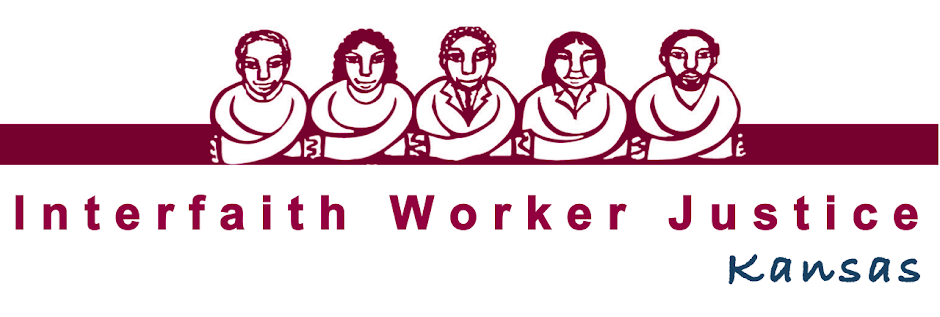Last week Interfaith Worker Justice Kansas sent the following candidate questionnaire to every candidate in Sedgwick County running for a seat in the Kansas State Legislature. We enclosed a self-addressed stamped return envelop with each questionnaire. We will publish responses to our survey--including the names of candidates who elect not to respond. Survey results will be shared with faith communities, organized labor, and the media. You can help ensure a more comprehensive result if you encourage candidates in your district to complete this survey. Thank you for your assistance.
IWJ – Kansas Candidates Questionnaire
(Please circle either YES or NO)
If elected:
1) Will you vote to exempt groceries from the
Kansas sales tax? YES NO
2) Will you vote to repeal the personal income
exemption for business “pass-through” income?
YES NO
3) Will you vote to restore a more progressive
income tax? YES NO
4) Will you vote to expand Medicaid? YES NO
5) Will you vote for increased and more
equitable funding for public education?
YES NO
6) Will you vote to repeal
laws that make it harder for Kansas citizens to register and vote?
YES NO
7) Will you refrain from
participation in the American Legislative Exchange Council (ALEC)?
YES NO
8) Will you vote to repeal KSA 12-16, 130, the
Kansas law that bans municipalities and counties from passing a local “living
wage” ordinance? YES NO
9) Will you vote to increase the Kansas state
minimum wage to at least $12 an hour?
YES NO
Thanks for taking the time to answer our
questions. Please return the completed
questionnaire in the stamped, addressed envelope included with this mailing.

